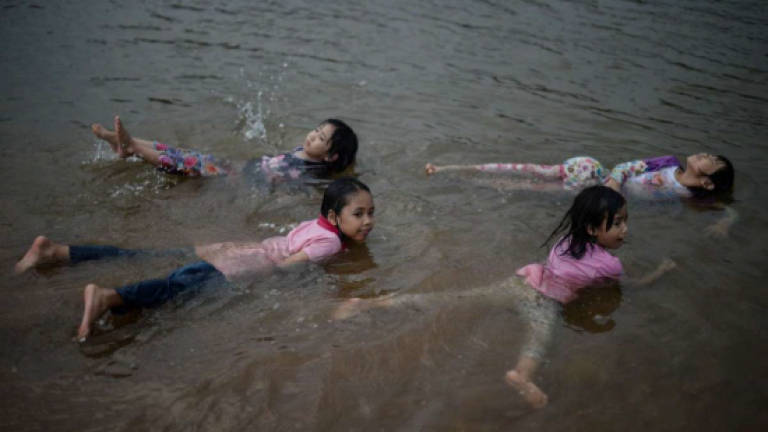NRE: Half of country’s rivers not clean

PUTRAJAYA: Almost half of Malaysia's 473 rivers are not clean.
Natural Resources and Environment Minister Datuk Seri Dr Wan Junaidi Tuanku Jaafar's speech text, said of the 473 rivers monitored by the Department of Environment, only 244 were found to be clean.
Disclosing this at the Seminar on Water Resources Security in the Context of Sustainable Development Goals 2016 (SDGs) today, he said 183 rivers were found to be slightly polluted and 43 others are polluted.
"Most of the polluted rivers are in urban areas where high pollution load originates from multiple sources, including waste water plants, industries and commercial premises, coupled with small base flow volume due to large percentage of paved areas," said Wan Junaidi whose speech was read by his deputy Datuk Hamim Samuri Hamim.
Wan Junaidi said he was concerned on the suspended sediment pollution from land development activities, where huge tract of lands are being cleared either for replanting or new commercial crops, with little erosion control measures taken for most of the cases.
In pointing that most of the sediments would be washed into waterways during an event of a storm, he said he had even received reports that turbidity level for one of the major rivers in the country had reached 6000 Nephelometric Turbidity Unit (NTU).
"That is slightly similar to the colour of 'teh tarik'. In a typical case, a reading of 1000 NTU would render a water treatment plant to be shut down. And the shutting down of plants due to high sediment readings has happened in many states before," he added.
He said state governments, through their enforcement and monitoring agencies, should establish mechanisms to fight sediment-related problems generated from land opening areas, involving developers, loggers, and miners, among others.
He said commitment by all concerned parties is required to ensure Ops Lumpur Programme, endorsed by the government in 2005 to monitor activities that could contribute to floods and river pollution, is sustained.
Wan Junaidi said the availability of water in the country is not evenly and proportionately distributed, stressing the need for some understanding and mechanism to provide incentive to the states that protect water catchment forest.
"There is also a need to provide a protocol and develop a uniform evaluation instrument to assess the value of water for any water inter basin transfers," he added.